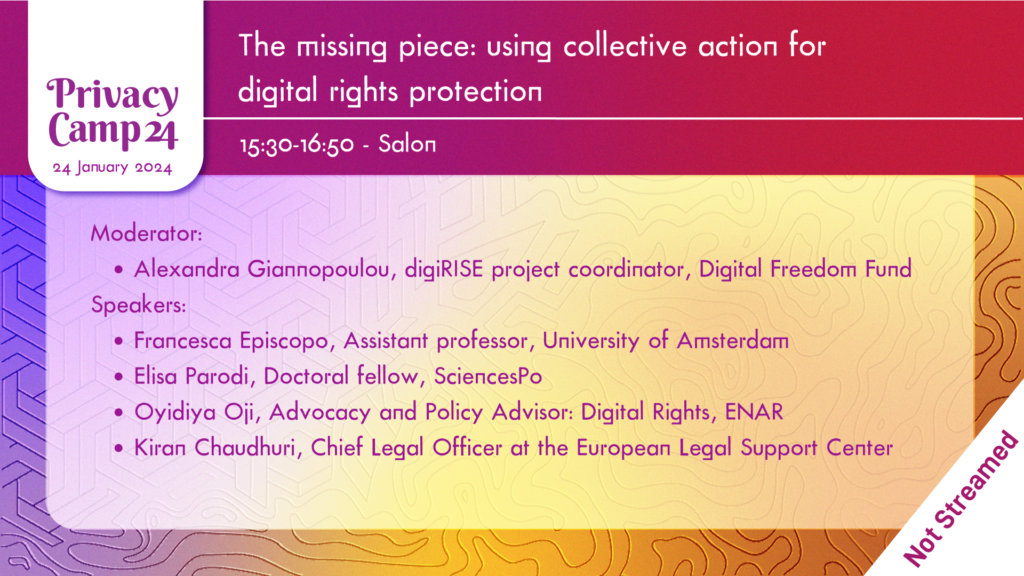
The law has historically struggled to capture and efficiently safeguard collective interests, especially towards countering structural injustices. Structural injustices – discrimination, exclusion, inequality, racism, sexism, ableism – are not new, and are deeply rooted in many societies. The embeddedness of injustices into existing structures means that the effect is experienced beyond the individual, and often on a collective and societal level.
Historically, these forms of injustices are not easy to address, and thus have required many forms of resistance, collective action and persistence to bring them to light. The datafication and algorithmisation of our lives have further intensified these forms of structural injustices. The impact of data-driven technologies systemically imposed upon some groups, provoking harm beyond the individual level but to the groups of individuals or populations collectively. We recognise that data-driven technologies and infrastructures mediate, affect and harm individuals alone or collectively.
The unlawful use of data-extractive practices, AI and other digital technologies may violate the digital rights of thousands or even millions of individuals. To ensure the enforcement of these rights at scale, collective action can enable civil society to develop efficient litigation strategies that allow them to represent groups or classes of claimants, both with and without a representative mandate. Such collective actions also create opportunities for cross-disciplinary and cross-jurisdictional collaborations between different CSOs and other institutional stakeholders.
We contend that the use of collective redress mechanisms to protect digital (including EU Charter) rights remains limited and that the role of collective action in enforcing digital rights remains underexplored.
The panel will explore strategic alignment and collective visions for how digital rights can be respected by the courts and those who hold power for the protection of human rights in digital environments. The overall objective is to explore to what degree collective action can become a standalone tool for digital infrastructure resistance.
Moderator:
- Alexandra Giannopoulou, digiRISE project coordinator, Digital Freedom Fund
Speakers:
- Francesca Episcopo, Assistant professor, University of Amsterdam
- Elisa Parodi, Doctoral fellow, SciencesPo
- Oyidiya Oji, Advocacy and Policy Advisor: Digital Rights, ENAR
- Kiran Chaudhuri, Chief Legal Officer at the European Legal Support Center
